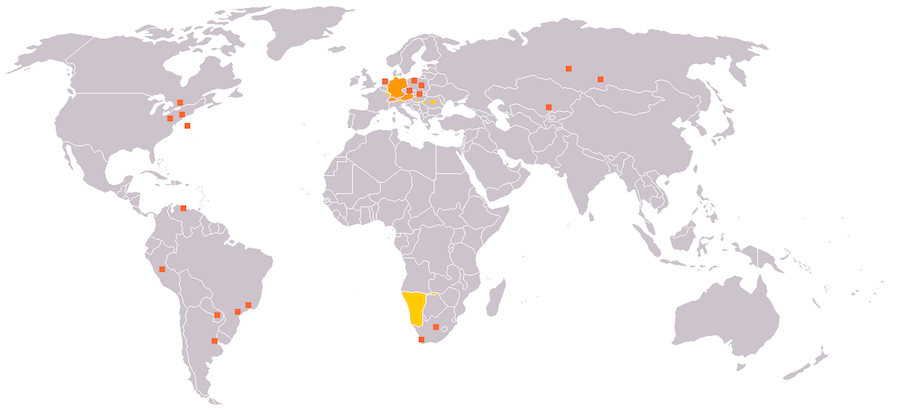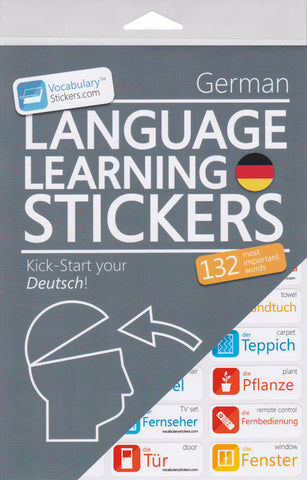Learn German Vocabulary
German Language

German is a West Germanic language. Most of the German vocabulary comes from the Indo-European family of languages, specifically the Germanic branch. There are about one hundred million people in the world who speak German, and they are mainly located within the European Union. This has made German a pluricentric language, which means many countries have their own variations of the words and dialect of the language. These variations include Austrian German, Swiss Standard German and Standard German. German is the sole official language in Austria, Liechtenstein, and Germany, and one of multiple official languages in Belgium, Luxembourg and Switzerland. The German language, with around 100 million native speakers, is the most widely spoken first language in the EU.

Map of German speaking countries (source: Wikipedia)
German Vocabulary
German Vocabulary has Germanic roots and shares a varying amount of vocabulary with other Germanic languages such as English, Dutch or Norwegian. Latin and Greek, the dominating languages of the Roman Empire, further influenced German vocabulary. Once the Roman Empire fell, there began to be some phonetic changes to the words of Latin. These changes lasted throughout age of Germanic Christianization all the way up to the 15th century Renaissance. This is the earliest known time when German vocabulary was used the way we know it today. Later, there were Italian influences to the language, which altered it a bit more between the 15th and 17th century. These Italian derivations helped create German words relating to finance, music, architecture and other modern subjects that were not around during the Roman Empire. Then between the 17th and 19th century, French words were being imported into the German language as well. The last language to influence German was English, which happened around the early 19th century all the way up to the 21th century – mostly with vocabulary relating to business and technology.
Continue reading on wikipedia >
Learning German
There are a number of ways to learn German with all the technology and resources available. Even though many schools don’t teach German as a second language, you can go to Internet websites, like YouTube, and look up free video lessons for learning German. There is also a variety of software tools available. Most popular are Rosetta Stone or Babbel; both are visual teaching programs where you learn German words from seeing pictures and hearing audio of what they mean. Some people prefer this approach to learning as opposed to just seeing the English translation of the words. Of course, if you really want to learn German fluently then you have to go to a German speaking country and live there for awhile. This really goes for any language because when your survival depends on learning a new language then you will be more focused on learning it. That is why learning German on the computer or in a classroom setting isn’t enough to become fluent in the language. It can help give you an idea, but you have to be around German speaking people to really learn it well.
Learn German phrases
German sounds like a difficult language to learn, but it really isn’t. You can try right away with these basic phrases.
- Sprechen Sie Englisch? - Do you speak English?
- Wie heißt du? - What is your name?
- Mein Name ist Peter? - My name is Peter.
- Wieviel kostet es? - How much does it cost?
- Verkaufen Sie Kaffe? - Do you sell coffee?
- Guten Morgen - Good morning.
- Guten Abend - Good afternoon.
- Können Sie mir den Weg zum Bahnhof zeigen? - Can you show me the way to the station?
You can make the first step towards learning German today by buying a set of VocabularyStickers. Our German language learning stickers will help you learn the most important 132 German words in no time; and so constitute an ideal and motivating start with the language.

